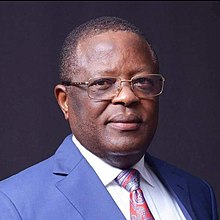According to him, on the average, anyone earning N30,000 a month and was ready to spend a third of that amount, would be able to afford one of these houses, that is the plan.
“From What I have seen so far, there is a one-bedroom unit and there is a two-bedroom unit, both coming under N2 million. I think that this is a very good thing indeed. And a point has been made that it is possible to build good, decent accommodation that isn’t out of the reach of practically everyone.
“We are hoping that this year, we will be able to very rapidly improve the scale and speed of putting these houses in place.
“Once we are able to get moving quickly, we think we can make available several thousands of houses across the country and more people can afford to live in such houses”, the vice president said.
The vice president noted that the job creation component of the ESP would also be actualised through the Social Housing Scheme, as there were young men and women, who are builders, architects, civil engineers, working on the project.
The social housing schemeis an important aspect of the plan by the Federal Government to address the nation’s housing needs and it entails building thousands of low-cost houses, creating jobs and wealth for youths that will be engaged in the construction of the houses.
Under the ESP, the Federal Government mandated the Central Bank of Nigeria to provide financing for the housing scheme and already a first tranche of N200 billion had been approved as the first tranche already.
There would also be a ”Rent-to-Own” option as part of the administration’s resolve to impact the common man, in the social housing plan that had been earmarked to generate 1.8 million jobs and deliver 1.5 million houses Nigerian families.
The implementing agency, Family Homes Fund (FHF) Limited, an agency under the Federal Ministry of Finance, had already mobilised thousands of Cooperative groups across the country to participate in the scheme.




